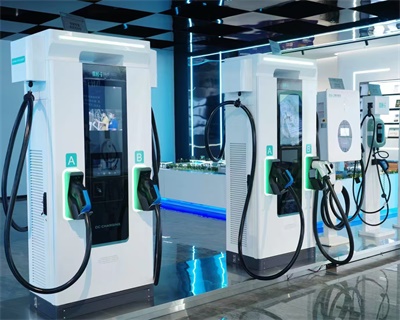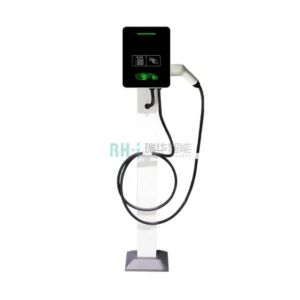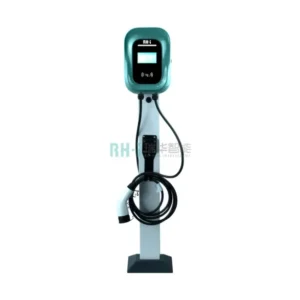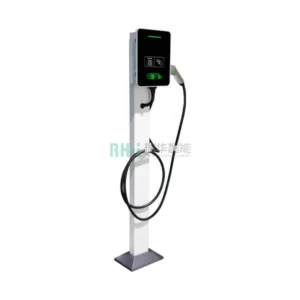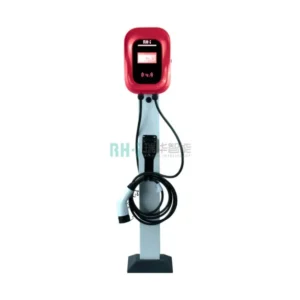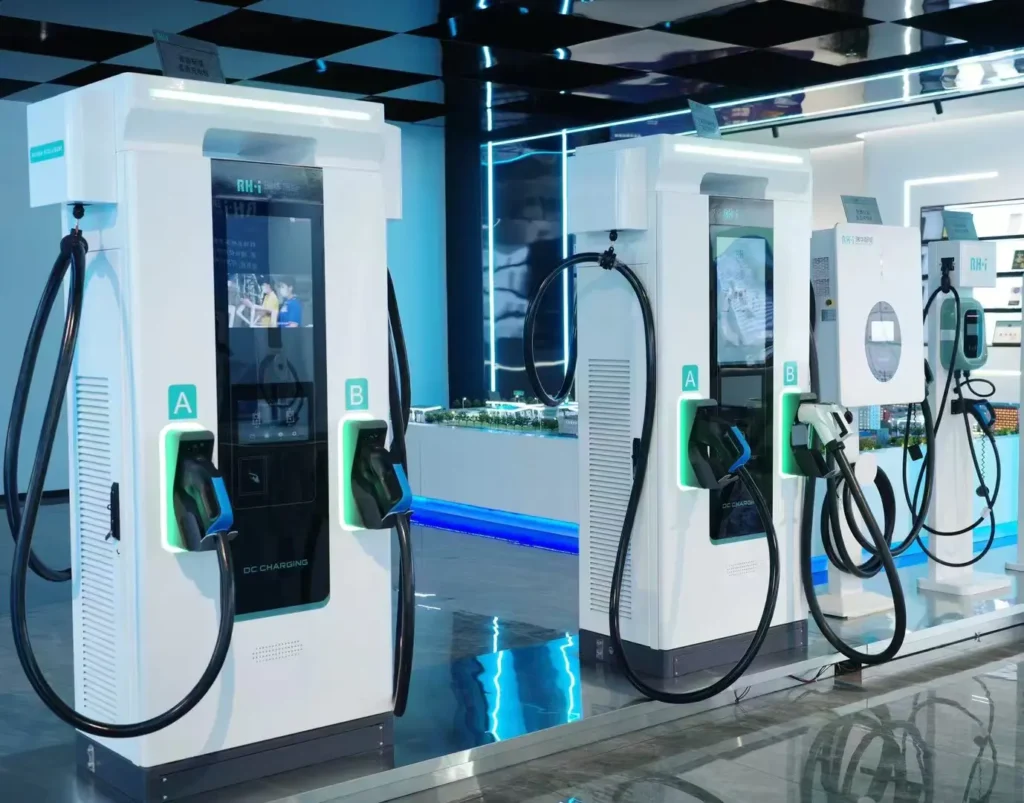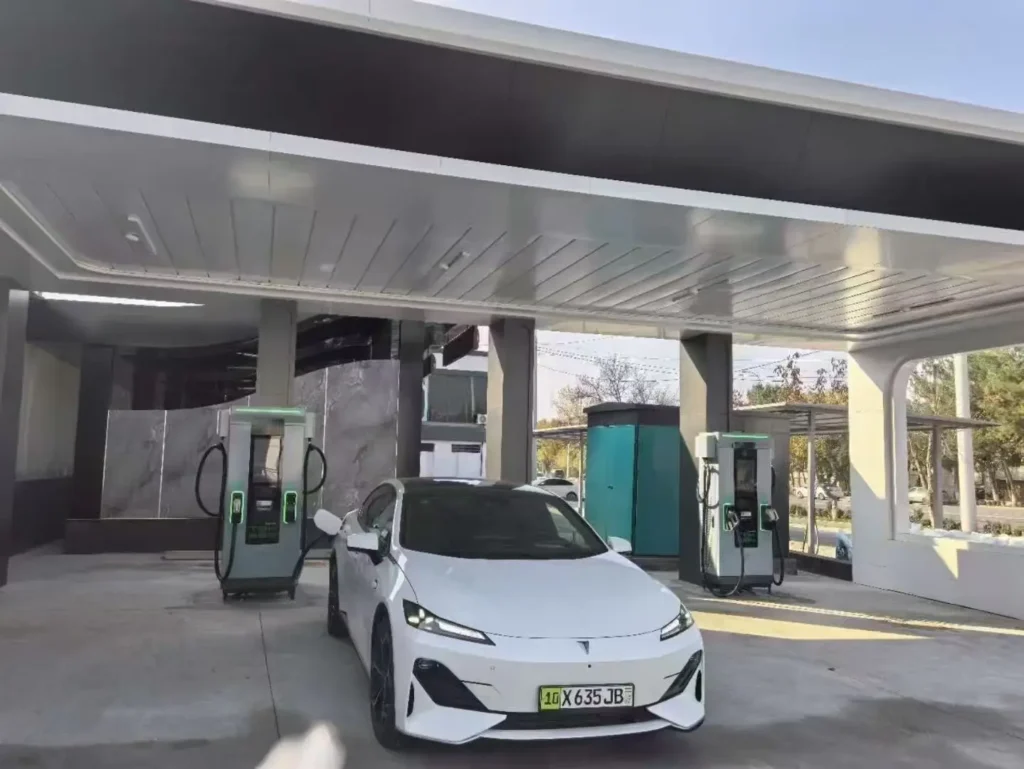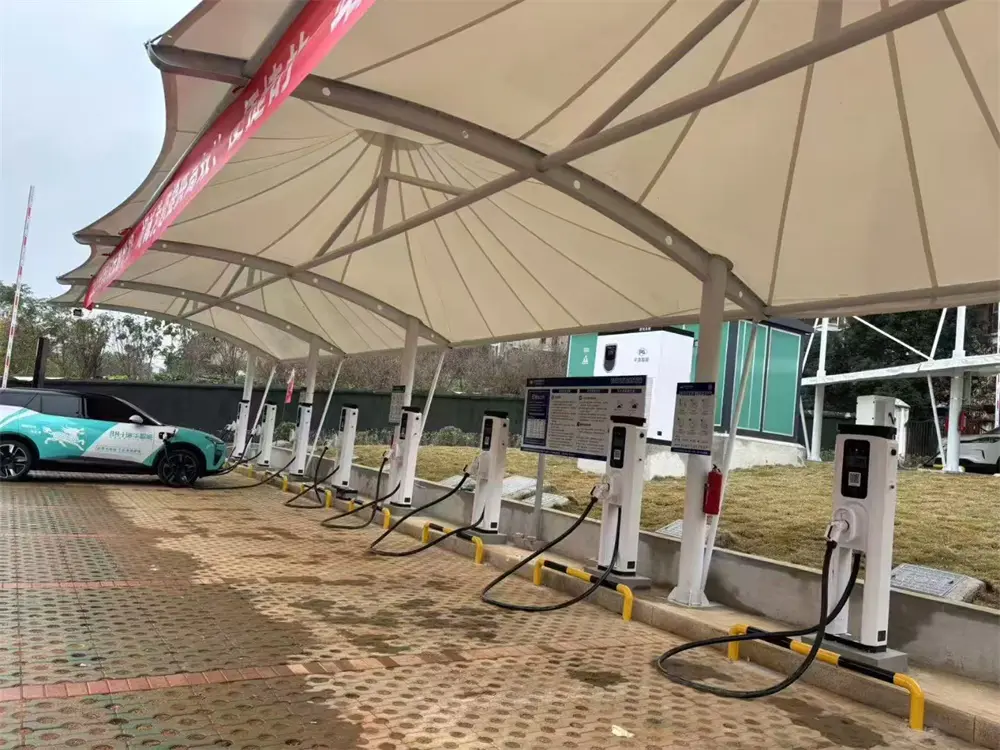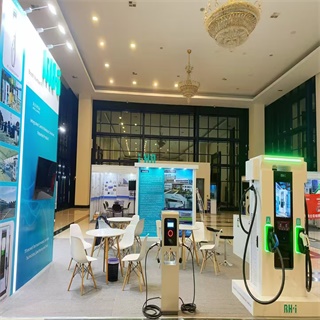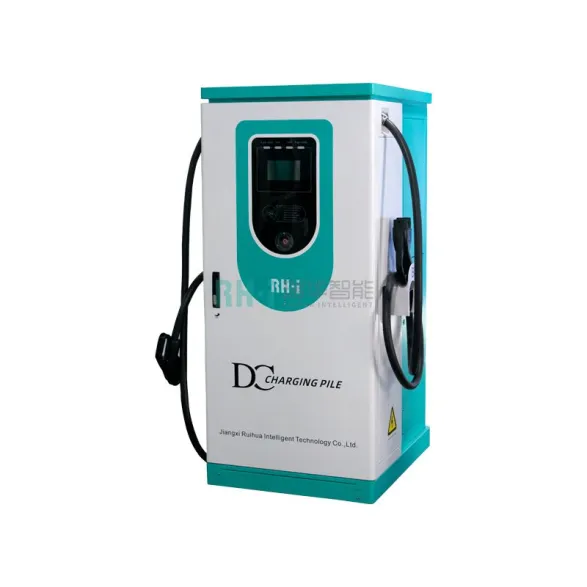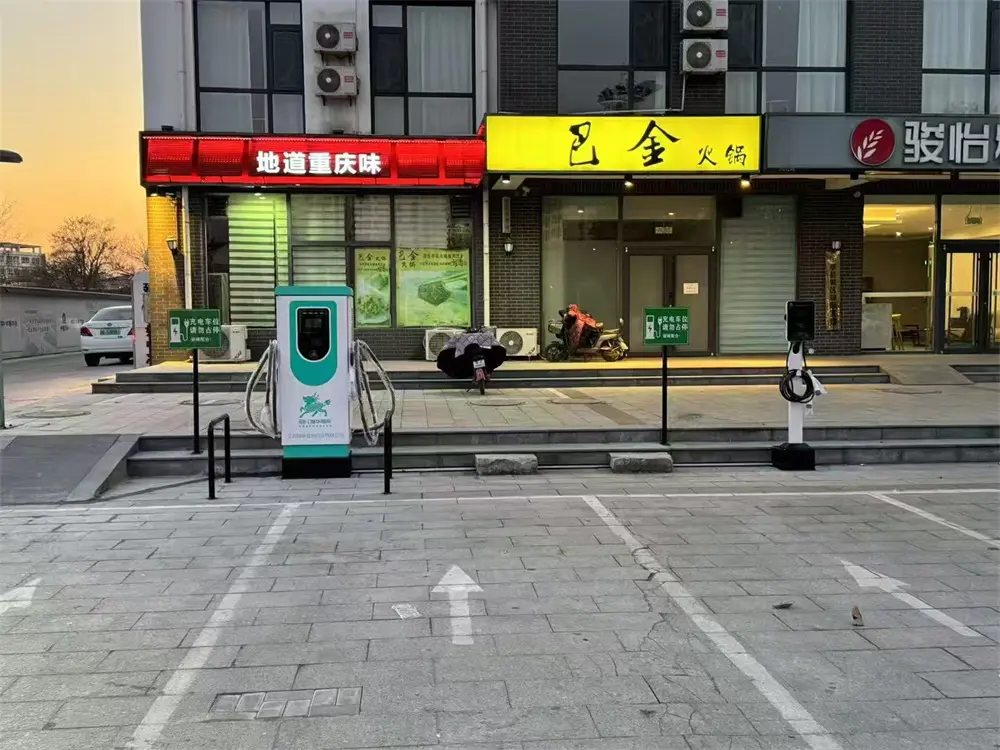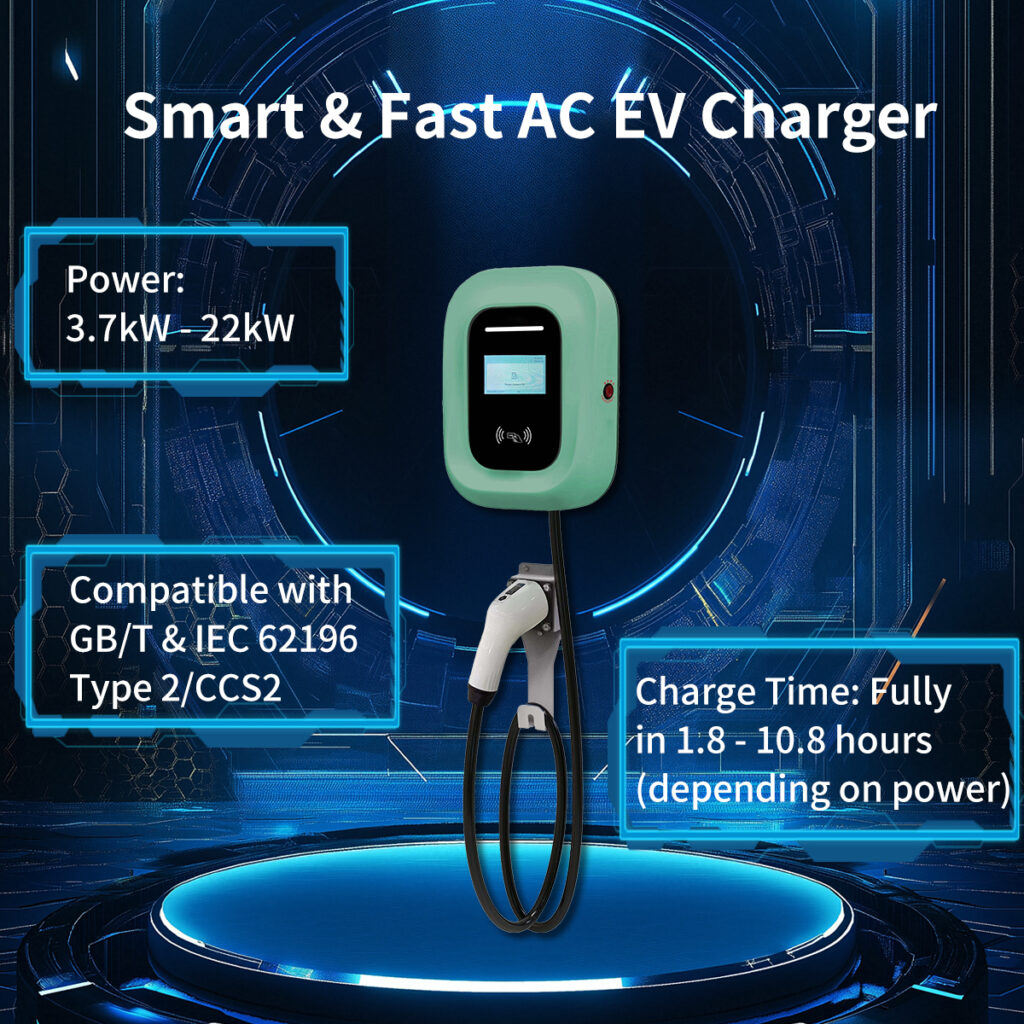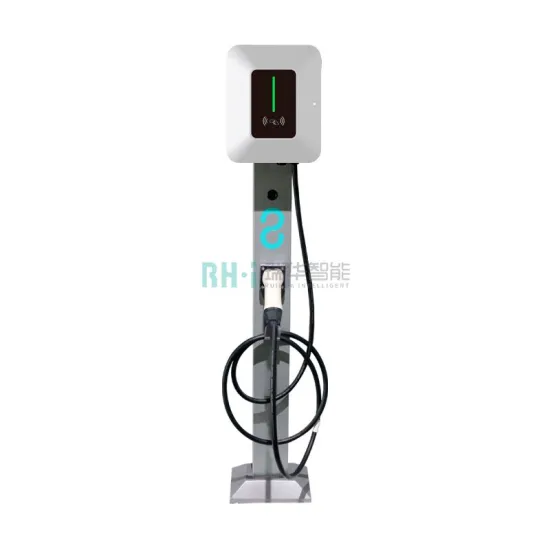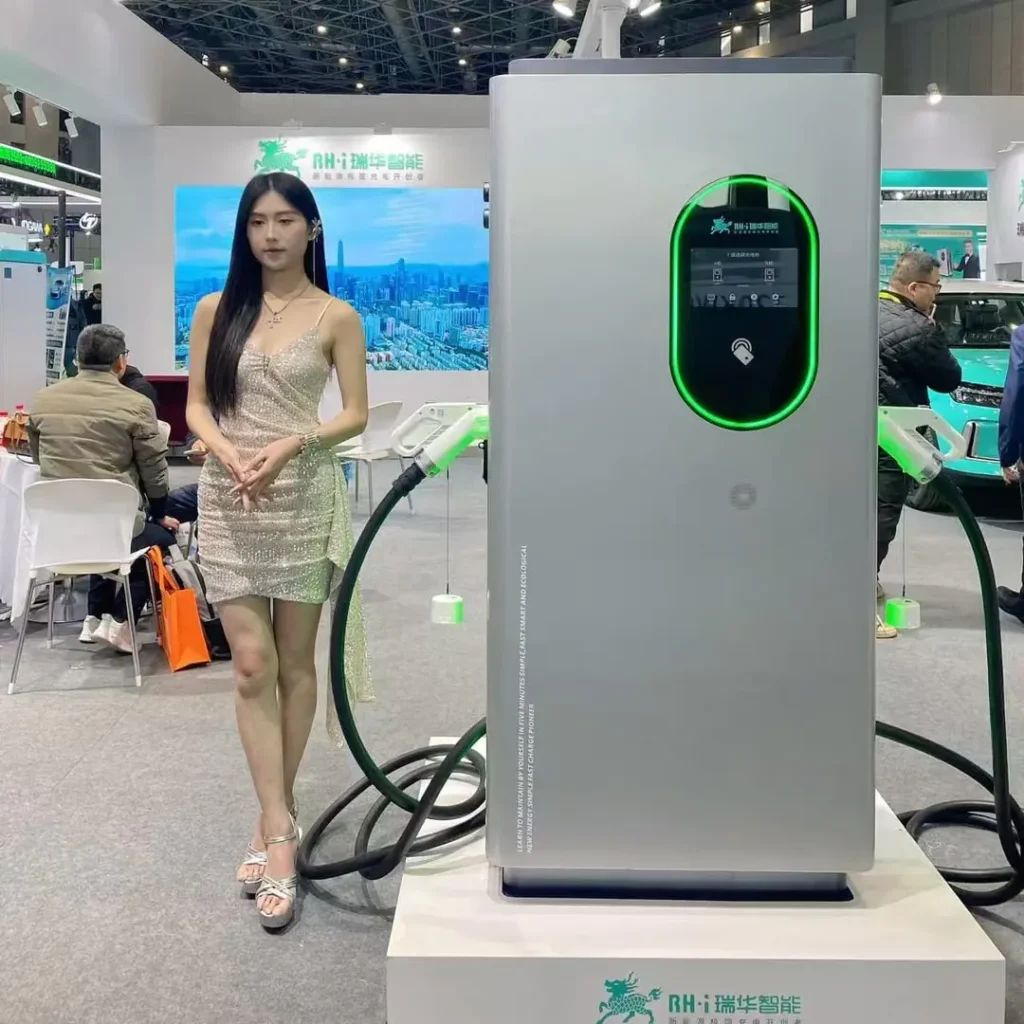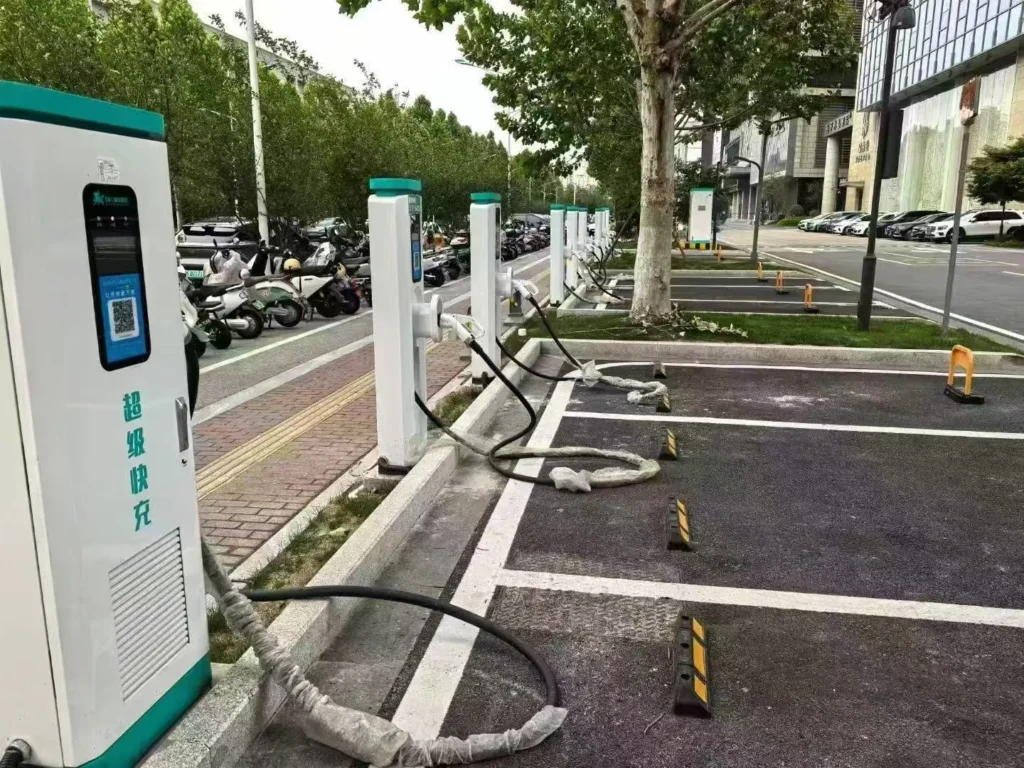Best 22 kW 3 phase EV charger
The 3-phase EV charger from Ruihua is a groundbreaking solution that redefines the way you power your electric vehicle. With its remarkable 22kW AC charger capacity, this charger sets a new standard for home EV charging. As a pioneer in electric car charging solutions, Ruihua understands the importance of convenience, efficiency, and affordability, especially for residential settings and apartments.
22kW 3-phase EV chargers is the fastest electric car charging speed that is realistically possible at a residential property. Technically, all EVs can use a 22kW home charger—they just won’t necessarily be able to make use of the full 22kW available.
Experience charging like never before with the Three Phase EV Charger’s 22kW AC charger capability. Say goodbye to lengthy charging times and embrace the swift power delivery that gets you back on the road quickly.
Designed for homeowners seeking an exceptional charging experience, this 22kW EV charger is the embodiment of convenience. As an electric car charger for home use, it seamlessly integrates into your daily life, ensuring your electric vehicle is always ready for your next adventure.
Ruihua understands the unique challenges of apartment living. Our three-phase EV charger brings electric car charging solutions for apartments to the forefront, offering a practical and efficient way for apartment residents to charge their vehicles without parking concerns.
Balancing home charging station costs with environmental responsibility is a priority. Our three-phase EV charger not only reduces the financial burden of charging but also contributes to a greener future by minimizing reliance on conventional fuels.
Ruihua Intelligent 22kw Three Phase EV Charger
Charging standard developed from ISO15118/DIN70121
- OCPP1.6J, OCPP2.0.
- All components come with CE certificate.
- Make the load balance within a charging station.
- Type RCD + DC 6ma
- Remote monitor&appointment&diagnosis&upgrade
Three Phase EV Charger Details:
| Product Model | RHAC07K-X, RHAC11K-X,RHAC21K-X |
| Optional Power | 7kw,11kw,21kw |
| Shell material | steel |
| Installation | Wallbox or column-stand |
| Product Size | 350*250*122 mm (H*W*D) |
| Wiring | Single Phase(1P+N+PE), Three Phase(3P+N+PE) |
| Compliance Standard | IEC 61851-1, IEC 62196-2 |
| Cable Length | 5m |
| Work Humidity | 5%~95% |
| Applicable scenarios | Indoor/Outdoor |
| Work Temperature | -30°C~+50°C |
Three-Phase EV Charger Features
1. Safety and Stability: This 22 kW EV charger has a reliable electrical protection function, such as lighting protection, over-voltage and under-voltage protection, leakage protection, over-current protection, short circuit protection, over-temperature, etc.
2.Nice Design Appearance:Adopt SGCC integral type punching process technology,Adopt chrome+painting technology
3. Intelligent and Easy to Use: Human-computer interaction adopts a full-color, high-definition display screen and visual operation. It supports 4G, Wi-Fi, Bluetooth, and LAN network methods; scanning code through the app is also available.
4. Support OCPP1.6j protocol, OCPP2.0
5. With IP65 industrial protection: In outdoor environments, it can be efficiently dustproof and waterproof, ensuring long-term and reliable operation.
6. With three protections (anti-moisture, anti-mold, and anti-salt spray) and double-layer anti-rust protection
7. Support for remote firmware upgrade (OTA)
At Ruihua, we’re not just providing a product; we’re delivering a lifestyle that bridges innovation with everyday living. The Three Phase EV Charger embodies our commitment to offering top-notch solutions that bring efficiency, convenience, and affordability directly to your doorstep.
♦Rapid Charging: Delivering a potent 22kW AC charger output, our home ev charger ensures that your electric vehicle is ready to roll in no time.
♦User-Centric Design: Crafted with user comfort in mind, our electric car charger for home is equipped with an intuitive interface and user-friendly features, simplifying your charging experience.
♦Space-Efficient Design: Space is precious, especially at home. Our home ev charger’s compact design seamlessly integrates into your living environment.
Discover the future of home EV charging with Ruihua. Leave behind slow charging times and embrace the swiftness of a fully charged electric vehicle. Reach out to us today to explore how the Three Phase EV Charger can elevate your home charging experience, offering you a cleaner, greener, and more sustainable journey ahead.




Related Products
7kw Home Charger, Single Phase EV Charger
Protection level: IP54
Number of guns: single gun design
Charging interface: CCS2, CHAdeMO, GB/T, etc.
11kW EV Charger, Home AC Car Charger
Protection level: IP54
Number of guns: single/dual gun design
Charging interface: CCS2, CHAdeMO, GB/T, etc.
19.2 KW EV Charger, AC Home Charger
Protection level: IP54
Number of guns: single gun design
Charging interface: CCS2, CHAdeMO, GB/T, etc.
Home 22kw EV Charger, AC Charging
Protection level: IP54
Number of guns: single gun design
Charging interface: CCS2, CHAdeMO, GB/T, etc.





